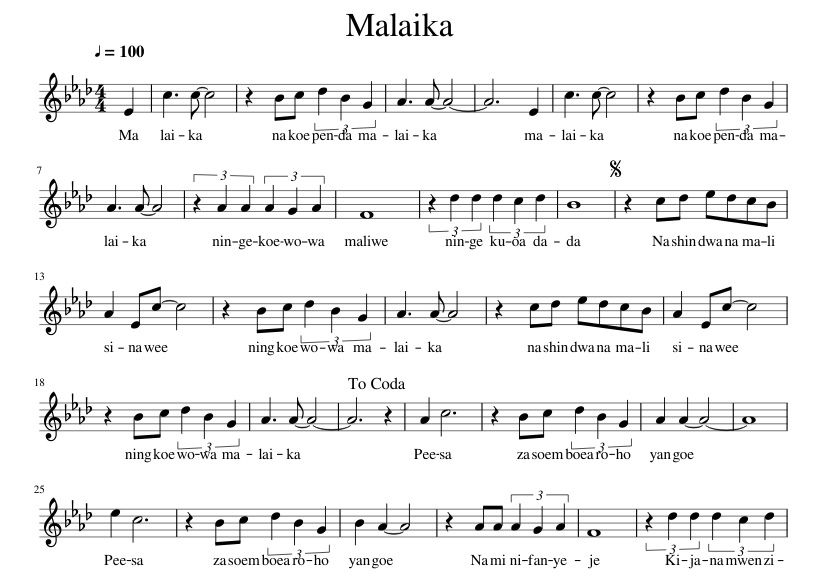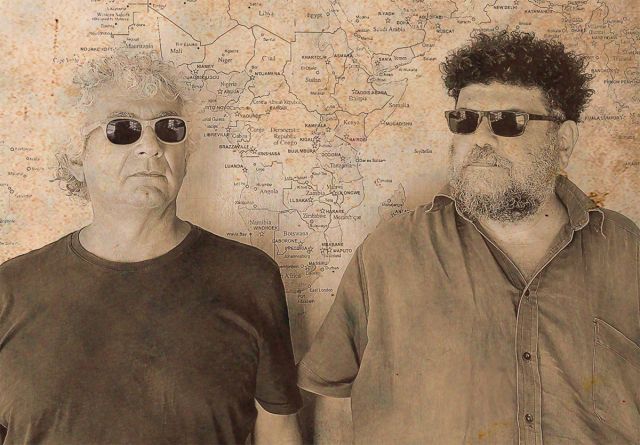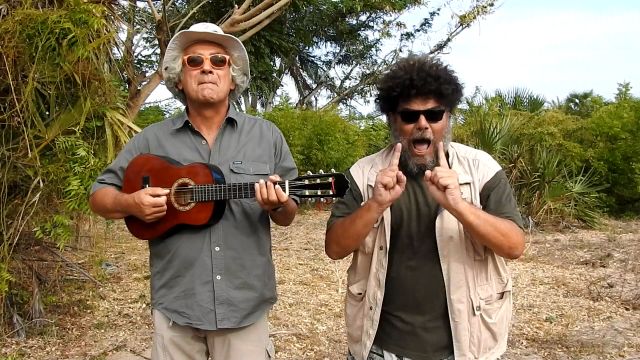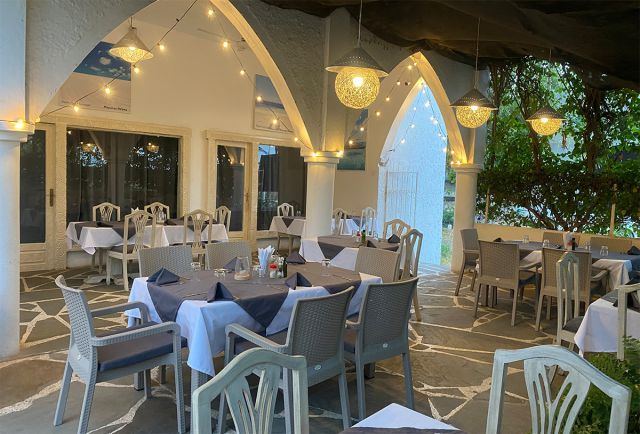
FREDDIE'S CORNER
20-04-2023 by Freddie del Curatolo

If in Italy we have had songwriters, sensitive and attentive chroniclers in verse of our times, or singers of the heart and human affairs, Kenya has gone through a very different musical history.
For centuries, sub-Saharan Africa lived on tribal songs and nursery rhymed tales that tended to exalt mainly rural life, ancestral customs and the passing of the seasons, punctuated by the events of earthly existence: births, marriages, funerals. Harvest songs, those of invocation to rain, peanas for ancestors, those to protect against bad omens.
The arrival from Europe of new sounds, related to swing and folk music, insinuated in East African musicians a new way of handling the song form. It could also make people dance, create romantic situations, entertain. In short, in one word: entertain.
Thus were born, in the years leading up to Kenya's independence, the first little orchestras, the groups that transmuted the traditional music of Lake Victoria (Benga) and Zaire (Lingala) into "pop" form.
One of these musicians, who can be considered the first true Kenyan songwriter, was named Fadhili Williams.
Born in the hills of Taita and living in Mombasa, he is the author of the most famous Swahili song of all time, performed by international stars such as Miriam Makeba and Henri Belafonte, among others. It is Malaika.
Legend has it that during a train ride from Mombasa to Nairobi, Fadhili met a man who was desperate because his fiancée's family had denied him the chance to marry her because he did not have the money for a dowry to pay. This would inspire the African Johnny Cash to write the continent's most famous love song.
A melancholy and passionate suite, it represents by its suave melody a symbol of the musicality of the Swahili language and the sweetness of the people of the Kenyan coast.
However, if we analyze the lyrics well, other elements also appear that those who frequent Kenya are familiar with: the frustration of poverty and the importance of being able to offer a woman a better future...but then are we sure it was a woman...since the translation of "Malaika nakupenda malaika" is "Angel, I love you Angel"? Okay, the angel according to tradition is an asexual being and the literal translation from Kiswahili of the name "Malaika" may not be so related to the celestial figure. In fact, in Italy we also have the name "Angela," while in East Africa there is no "Malaiko."
But who knows, who is to say that from a true cue, Fadhili did not want to launch an ante-litteram provocation on one of the topics that even today in the Third Millennium in Kenya, as well as in Uganda and other African nations, are literally taboo?
In any case, Fadhili Williams died in 2001, leaving a legacy of more than 200 songs and never having come out.
The original lyrics read, "Malaika, nakupenda malaika/ Naimi nifanyeje kijana mwenzio/ nashindwa na mali sina we/ ningekuoa malaika.
Pesa zasumbua roho yangu/ nami nifanyeje, kijana mwenzio/nashidwa na mali sina we/ningekuoa malaika.
Kidege, hukuwaza kidege/ ningekuoa mali we, ningekuona dada/ nashindwa na mali sina we/ningekuoa malaika.
Translation (free): Angelo, I love you Angelo. I love you, Angelo. But how can I do it, my little love? I don't own any wealth.
'This money problem is gripping my heart. What can I do, my little love?
I don't have a penny, Angelo! I dream of you all the time, little bird. I want to marry you, sister.
But I don't have a penny, I can't, Angelo.
The most important aspect of the poetic song you have just tasted, apart from the Afro-Italian, Afro-Diasian and Afro/a/*+ mischief, is that Fadhili Williams has opened an important Kenyan breach into songwriting.
One need only think of Nabil Salsui, author of "Karibuni Kenya" and other ballads that magnify a mother land that has recently become free, songs that like American songwriter Woody Guthrie's "This land is my land," carry the realized dream of independence as hope for a better future for all. More poignant and introspective is the King of Benga, Daudi Kabaka, known for his "Pole Musa," a story of a wife badly reduced by the constant beatings of a drunken husband. "You beat me like a donkey," reads one verse. "I used to be beautiful, now I bear your marks on my face, find a younger, more beautiful wife to ruin." A committed and tragic lyric, a forerunner of denunciations of prevailing machismo, it is reminiscent of the "cursed" stories of the early great black American bluesmen of Tennessee and Missouri, à la Robert Johnson's "Hellbound on my trail."
Before long Williams, Salsui and Kabaka realize they are not alone; a movement has been created that will influence many other more or less capable and enterprising strummers.
Arguments over the usucapione of land without an official owner (as in Fabrizio De André's Sardinian "Zirichiltagghia"), parables about the exploited and exploiters using the metaphor of animals (in the Latin manner of Phaedrus' "Lupus et agnus," which in Kenya becomes "Simba na swala," the lion and the antelope) or of cooperation, as in the most famous folksong giriama: Hinde (let's go) in which the cantor invites his friends (Kazungu Wa Fujo which we could translate as "Fatty Pasty," Charo the lion and Karisa the elephant to build a house together with an attached store. A nursery rhyme in which elements are added to build, reminiscent of the circularity of Branduardi's "Alla fiera dell'est." Going to discover it, the Kenyan song is not so trivial, reading between the lines of the simplicity of living and between those of an essential pentagram, uncertain and full of surprises.
SERVICES
by redazione

The management of Malaika Town and Malaika Beach in Malindi announces that on Wednesday...

A "light" but ironic and intelligent aperitif, a pleasant and fun date like having a chat with old...
PLACES
by redazione

Malaika Malindi Restaurant, a renovated restaurant, ice cream parlor and lounge bar on the waterfront of...

Here is a date for those who want to have a laugh, listen to good music, irony, poetry and...
PLACES
by redazione

News at one of Malindi's most celebrated restaurants and lounge bars, Malaika Malindi on the town's...

Malaika Malindi's weekly rendezvous on the town's waterfront harbor, which is preparing to revive a new...

Malaika Malindi Restaurant offers another Wednesday disco lounge in the new indoor room open...

With the arrival of the high season, the Malaika Malindi Restaurant on the tourist town's waterfront raises...
EVENTS
by redazione

The big family Malaika continues the successful initiative of the Tropical Party on Wednesday at...
PLACES
by redazione

From Wednesday 25 August, Malaika Beach, the corner of paradise on the white beach of...